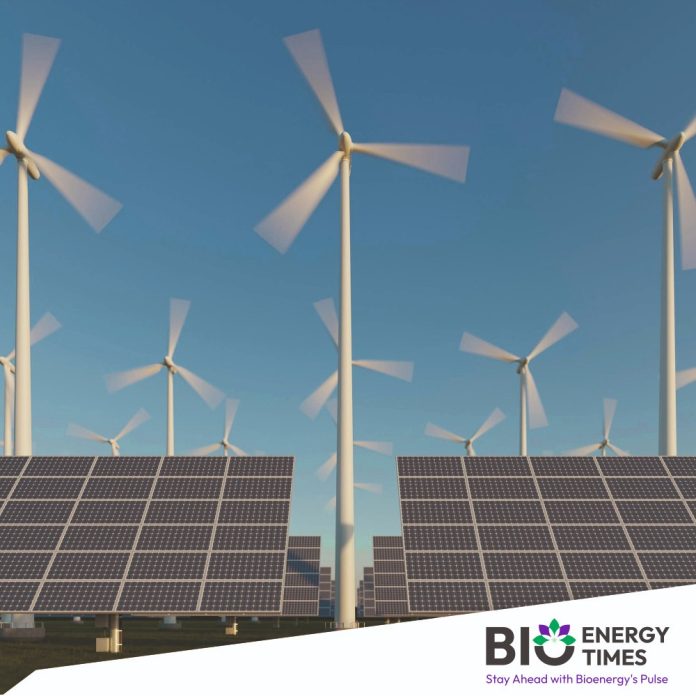Union Minister for New and Renewable Energy, Pralhad Joshi, announced that a dedicated task force will be formed, bringing together all relevant stakeholders, to help achieve India’s ambitious target of 500 GW of renewable energy capacity by 2030. The task force will be established by the Ministry of New and Renewable Energy (MNRE) in collaboration with the Ministry of Power.
Speaking at the closing session of the two-day “Chintan Shivir” event organized by MNRE in Bhubaneswar, Odisha, Joshi emphasized the need to install 288 GW of renewable energy capacity over the next six years. This will require an investment of Rs 42 lakh crore, which includes the necessary transmission infrastructure. He stressed that solving the challenges facing the renewable energy sector will require a concerted effort from all stakeholders.
Joshi highlighted that the event had brought together 117 industry leaders and 67 representatives from state governments and public sector undertakings (PSUs), with participation from 12 major renewable energy-producing states. He reiterated India’s commitment to the “Panchamrit” climate goals announced by Prime Minister Narendra Modi, particularly the 2030 target of achieving 500 GW of renewable energy capacity.
The Minister also revealed that MNRE will organize hackathons for startups in the renewable energy sector, with assured offtake, to promote the indigenization of renewable energy technologies. A new Joint Centre of Excellence for Research and Development will also be established, in partnership with the Ministry of Power, to foster innovation and technological advancements in the sector.
In addition, Joshi emphasized the need to finalize Power Purchase Agreements (PPAs) quickly and to strictly enforce Renewable Purchase Obligations (RPOs) to ensure the successful implementation of renewable energy projects.
The Union Minister also highlighted Odisha’s vast renewable energy potential, including 140 GW of solar capacity and significant opportunities for green hydrogen production, given the state’s long coastline and port infrastructure. The government plans to develop Odisha into a major renewable energy hub and explore green hydrogen production in the state. The potential for floating solar panels in Odisha will also be explored, he added.
Joshi further mentioned that a 6,000 MW manufacturing capacity for solar modules, solar cells, and ingots/wafer is being set up in Dhenkanal District, Odisha, with an investment of around Rs 9,000 crore. Additionally, another facility in Khorda, Bhubaneswar, will produce 1,000 MW of solar modules and cells with an investment of approximately Rs 730 crore.
The Minister also highlighted the success of the PM Surya Ghar Yojana, which is expected to achieve over 5 lakh installations by the end of November 2024. He noted that there are ongoing discussions to expand the Production Linked Incentive (PLI) scheme for the domestic manufacturing of solar modules and cells.
Concluding his address, Joshi stated, “We leave this Shivir not only with a stronger sense of purpose but also with a more refined and comprehensive roadmap than we had two days ago.”
Odisha’s Deputy Chief Minister, Kanak Vardhan Singh Deo, affirmed the state government’s support for the Union Government’s efforts to meet the ‘Panchamrit’ targets set by Prime Minister Modi.
Prashant Kumar Singh, Secretary of MNRE, noted that the Chintan Shivir facilitated a fruitful exchange of ideas, and that the Ministry is committed to strong inter-ministerial coordination to address the challenges facing the renewable energy sector. Odisha’s Principal Energy Secretary, Vishal Kumar Dev, also spoke at the event, and Sudeep Jain, Additional Secretary of MNRE, extended a vote of thanks to all the stakeholders who participated.
The two-day Chintan Shivir, held from November 14, 2024, in Bhubaneswar, focused on critical challenges facing the renewable energy sector, as outlined by Union Minister Pralhad Joshi in his opening address. Over the course of the event, 17 sessions were held on topics such as solar and wind energy deployment, green hydrogen, energy storage, land evacuation, transmission planning, and policy development, all aimed at achieving the ambitious target of 500 GW of non-fossil fuel energy by 2030. Key decision-makers, financial institutions, industrial leaders, CEOs, and government officials from both central and state governments participated in these discussions, marking a significant step in India’s renewable energy journey.
To read more about Biomass Industry News continue reading Bioenergytimes.com














